Sports
Champions League: A Guide to the 2024/25 Revamp
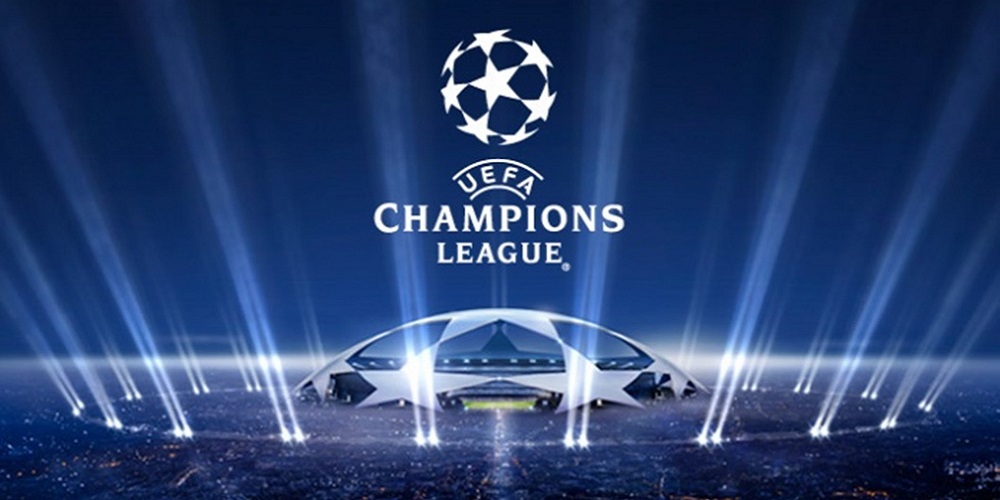
The UEFA Champions League is set to undergo its most significant transformation in over three decades, with a series of major changes coming into effect for the 2024/25 season. These alterations, designed to modernize and intensify Europe’s premier club competition, will see the number of matches surge from 125 to 189, bringing a fresh dynamic to the tournament.
Here’s everything you need to know about the revamped format.
Expansion and Scheduling Overhaul
One of the biggest changes is the expansion from 32 to 36 teams. This increase accompanies a shift from the traditional group stage format to a single league phase, where all participating teams will compete in a unified table. Each club is now guaranteed a minimum of eight matches against eight different opponents, a notable increase from the previous six matches against three teams.
The revamped schedule also means the league phase will extend into late January, compared to the previous mid-December conclusion. To accommodate the expanded format, UEFA has introduced exclusive weeks dedicated solely to Champions League fixtures, ensuring that no other European competitions will clash with these dates. Matches will now be spread across Tuesday, Wednesday, and Thursday, adding a new rhythm to the football calendar.
New Format Details
The shift to a league-based format fundamentally changes how teams progress through the tournament. The top eight teams in the league will automatically qualify for the knockout stages. Teams finishing between ninth and 24th place will enter a two-legged play-off, battling for the remaining spots in the Round of 16. Those finishing 25th to 36th will be eliminated from all European competitions for the season.
This new format significantly increases the level of competition, with more matches against a diverse range of opponents. The days of playing the same two teams home and away are gone, replaced by a more varied and unpredictable group of fixtures.
Draw Process and Fixture Release
The draw for the league phase will take place on August 29, 2024, and will involve a combination of manual and automated processes. Initially, all 36 teams will be manually drawn, followed by an automated draw to assign each team its eight opponents, with the fixtures then being scheduled as either home or away.
The final fixture list will be published on August 31, 2024, providing fans with the complete schedule for their teams’ matches throughout the league phase. Importantly, clubs will not face opponents from their own country and can play a maximum of two teams from the same nation during this stage.
Participants and Seedings
For the first time since 1992, the Champions League is introducing such a comprehensive overhaul. Italy and Germany have been the big beneficiaries of the expansion, each gaining an extra spot in the competition based on their teams’ performances in European competitions. This means at least ten teams from these two countries will be part of the 36 clubs competing in the league phase.
Teams will be seeded into four pots based on their UEFA coefficients, ensuring a balanced and competitive draw. High-profile clubs like Manchester City, Real Madrid, and Bayern Munich are expected to feature in Pot 1, while Pot 2 will include strong contenders like Arsenal and Juventus. The pots will progressively include teams with lower coefficients, creating a mix of established giants and rising challengers.
Timeline of Key Dates
The league phase kicks off on September 17-19, 2024, with subsequent matchdays spread out until January 29, 2025. The knockout play-offs will take place in February, followed by the Round of 16 in March. The competition will culminate with the final at the Allianz Arena in Munich on May 31, 2025.
Changes Beyond the Champions League
The UEFA Europa League and Europa Conference League will also see format changes, aligning them more closely with the new Champions League structure. Both competitions will feature 36 teams in the league phase, with the Europa League teams playing eight matches and the Conference League teams playing six.
These adjustments mark a significant evolution in UEFA’s club competitions, promising more excitement, more matches, and a more competitive environment across the board. The 2024/25 season is set to be a landmark in European football, redefining the way we experience the Champions League and its sister tournaments.
Sports
Just in: Newcastle pummel Man United 4-1
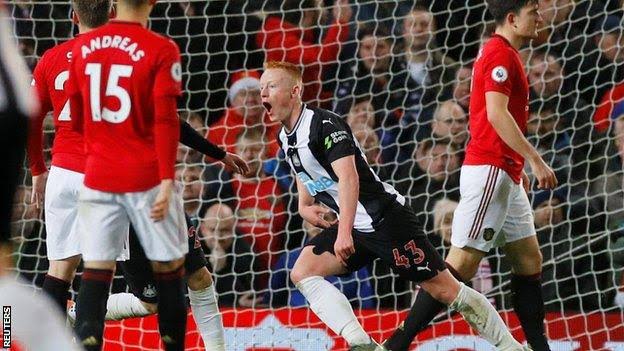
Newcastle on Sunday pummeled Manchester United 4-1.
Newcastle to chance as they dealt a terrible blow on former league toppers.
Sports
Just in: Arsenal draw Brentford as silverware hope continues to dwindle
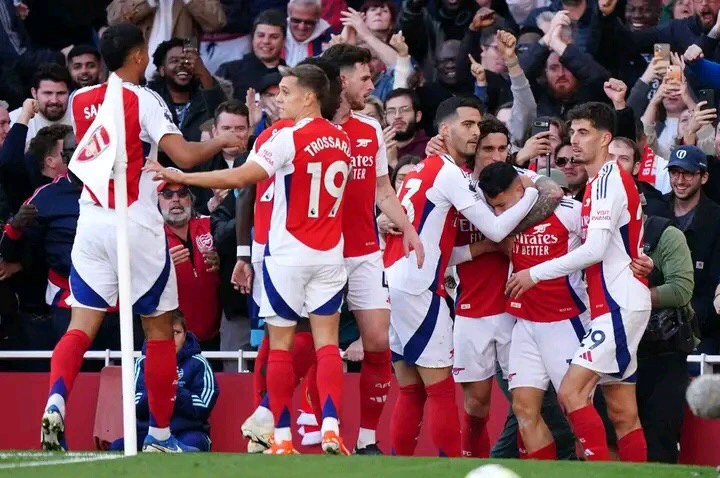
Arsenal draw Brentford as hope of making it to the top continues to dwindle.
Arsenal after a superlative display against Real Madrid could not pull a win against Brentford at Emirates.
Sports
SAD! Most popular ex-national football team captain, Christian Chukwu is dead
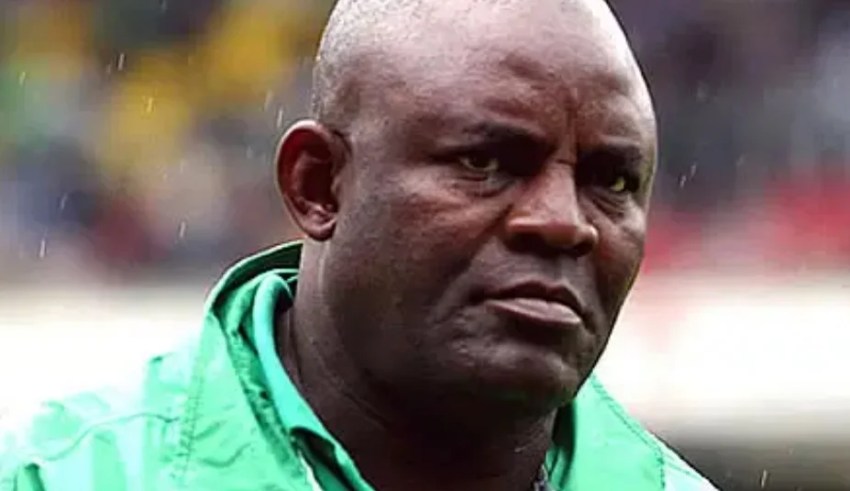
Most popular ex-captain and head coach of the Super Eagles, Christian Chukwu, is dead.
He was 74.
The football legend reportedly passed away in the early hours of Saturday though the exact circumstances surrounding the situation remain unclear as of the time of filing this report.
His longtime teammate and friend, Dr. Olusegun Odegbami, confirmed the development.
Odegbami, who won the 1980 Africa Nation Cup with Chukwu, said: ‘I just received the news that between 9:00 and 10:00 this morning, “Chairman” Christian Chukwu, MFR, my bosom friend and teammate, one of the greatest football players in Nigeria’s history, has passed on’.
Born 4 January 1951, Chukwu had an illustrious career with Rangers captaining them to many laurels on the domestic football scene and led the Flying Antelopes to continental glory by winning the now rested African Cup Winners Cup in 1977.
-

 News23 hours ago
News23 hours agoTinubu’s ugly past shores up as US Judge orders DEA, FBI to release files
-

 News11 hours ago
News11 hours agoAutonomy: 774 LGs challenge FG, states in court Tuesday
-

 Sports22 hours ago
Sports22 hours agoJust in: Newcastle pummel Man United 4-1
-

 News4 hours ago
News4 hours agoRivers women rally in support of state of emergency
-

 News22 hours ago
News22 hours ago2027: Atiku’s Opposition Front is a mission impossible-Wike declares
-
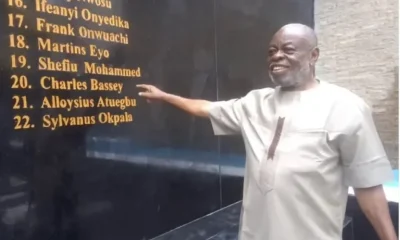
 News23 hours ago
News23 hours agoSAD! Another Christian Chukwu’s team mate, Charles Bassey is dead
-

 News11 hours ago
News11 hours agoZulum orders arrest, offers house, scholarship to abused boy in viral video
-
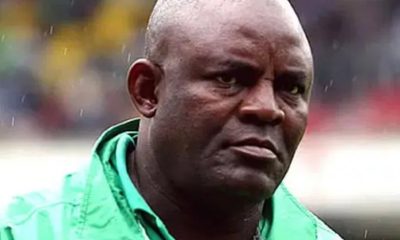
 News22 hours ago
News22 hours agoChristian Chukwu’s Death A Monumental Tragedy— Hon Nnaji






